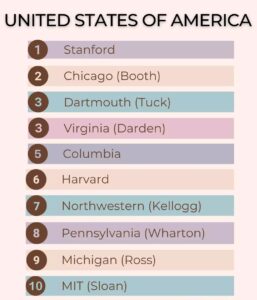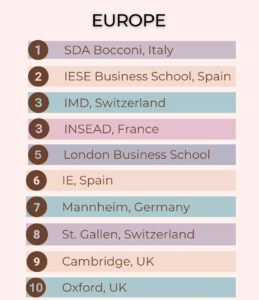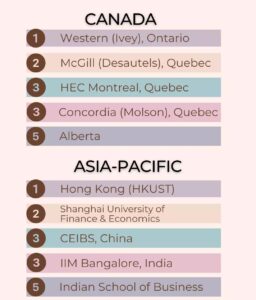Synopsis
Bloomberg Businessweek’s ranking evaluates various factors including satisfaction levels of students and alumni, networking opportunities, career prospects, and skills development.
Stanford Graduate School of Business remained the best business school in the world, according to Bloomberg Businessweek’s annual ranking, for the fifth consecutive year. This assessment evaluates 110 full-time graduate MBA programs worldwide, drawing on data provided by participating institutions and survey responses from students, alumni, and employers.
Specific criteria include levels of satisfaction regarding learning experiences, networking opportunities, career prospects, skills development, and more.
According to the rankings, Stanford’s standing can be attributed, in part, to its strong ties with the technology startups, venture capital firms, and entrepreneurial ecosystem of Silicon Valley.
The ranking focuses on five key indexes: Compensation, Learning, Networking, Entrepreneurship, and Diversity. Stanford secured the top spot in the Entrepreneurship category, reflecting its commitment to nurturing students’ entrepreneurial ambitions. This year, the school introduced an “ecopreneurship” program in collaboration with the university’s Doerr School of Sustainability, acknowledging the growing interest in climate change and sustainability among students.
The emphasis on sustainability and climate change has become increasingly important at business schools worldwide, resonating with students, faculty, and administrators alike. Schools are responding by incorporating interdisciplinary programs, introducing new courses, and bolstering research efforts in areas that may not have been as prominent in the past decade. This approach aims to provide students with a more comprehensive understanding of the evolving global landscape.
Despite challenges, including technology sector layoffs that began in late 2022, which temporarily affected job prospects, business school leaders remain optimistic. They anticipate the emergence of new areas of expertise and an ever-evolving business leadership profile. Business education is viewed as a valuable asset in career progression and leadership development, with the influence of MBAs extending beyond financial goals.
Compensation, a critical factor for students and alumni, can significantly influence a school’s ranking. The University of Virginia’s Darden School of Business, for instance, improved its ranking from 9th to tie for 3rd in the US due to a higher starting salary reported by recent alumni.
The importance of compensation, however, varies among MBA students, with many motivated by specific career goals and interests rather than solely financial objectives.


